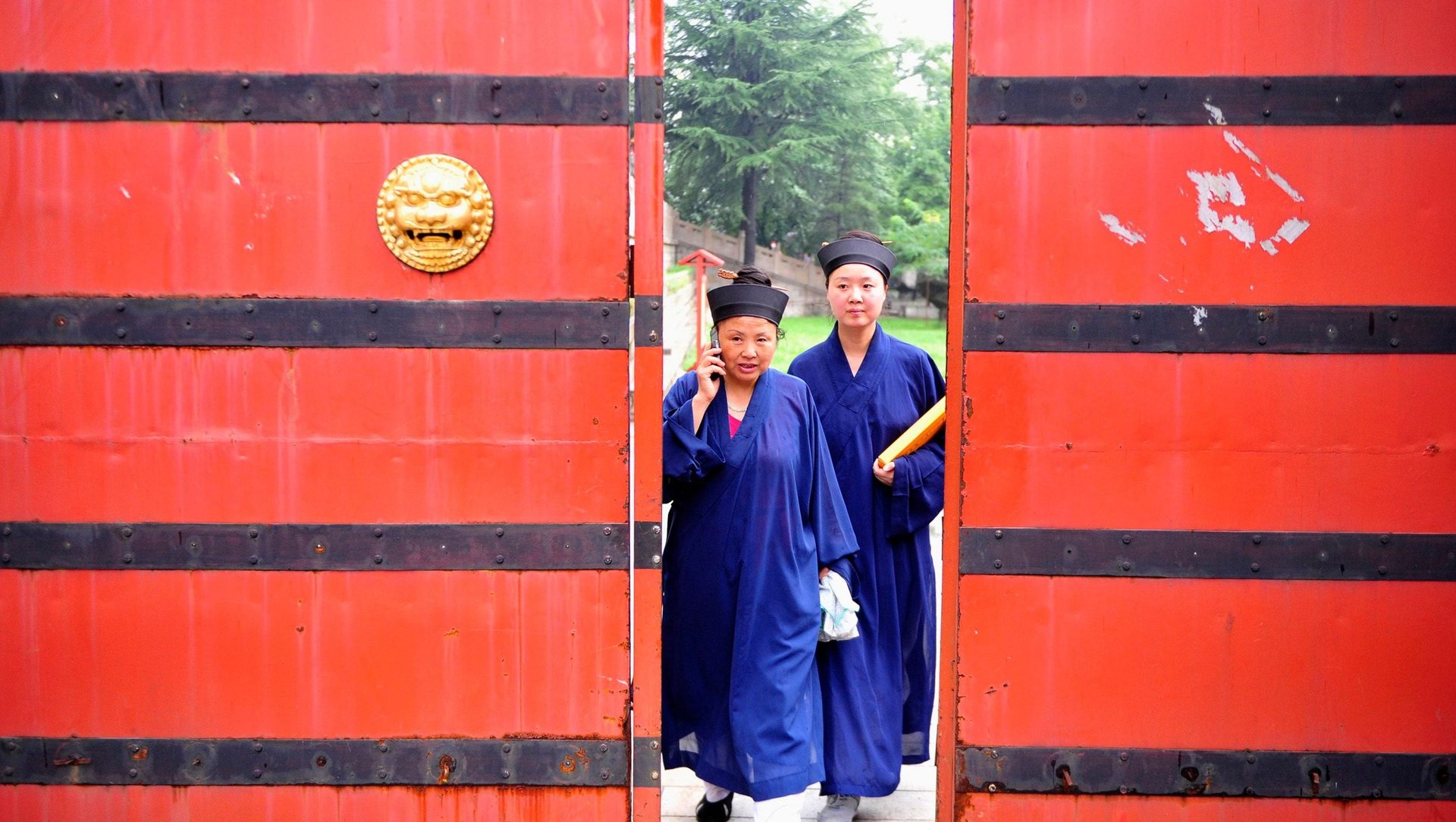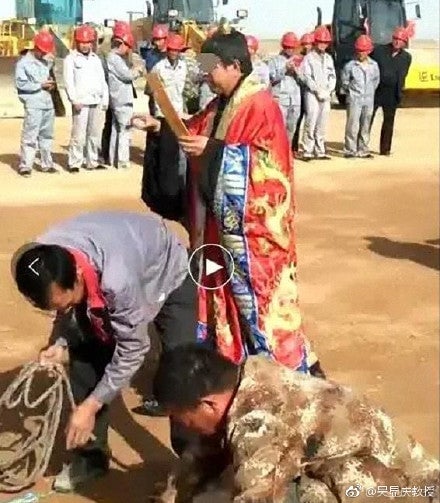China’s top science institute apologized for kicking off a nuclear project with religious rites
China’s top science institute is in trouble for mixing science with religion.


China’s top science institute is in trouble for mixing science with religion.
China’s Academy of Sciences (CAS) apologized on Monday (April 30) after pictures (link in Chinese) of people holding a Taoist ritual ceremony (link in Chinese) at the start of construction for its nuclear facility made waves online. Construction firms often practice Buddhist and Taoist rituals as a mark of respect to nature when beginning building work in China, but many said such practices—which in this case involved sacrificing a lamb and burning papers for good luck—were out of place at a site intended to advance science.
“This seems like the project’s builder really believed in the ritual. Does this mean that our high-technology projects are built by a group of illiterates who don’t trust science? Can we still believe in the quality and precision of the project?” one person wrote (link in Chinese) on Zhihu, China’s answer to Quora. “If this happened decades before the foundation of China we might understand, but it’s already 2018.”
Two nuclear scientists from the Shanghai Institute of Applied Physics, a CAS affiliate, who attended the ceremony in northern China’s Gansu province last Thursday (April 26), have also been suspended. The institute apologized for “bringing negative influences (link in Chinese)” into society.
China has a complicated relationship with religion and its own historic spiritual traditions. Communist Party members are supposed to be atheists and the party has long fought against feudal superstition, including Taoist practices. Still, of the officially sanctioned religions, the Communist Party has a preference for Taoism and Buddhism—religions from which the party is able to harness traditional values in line with its mode of governance. (Islam, on the other hand, gets much harsher treatment.)

According to the CAS, the ritual was organized by the construction company working on the site, and the scientists at the scene didn’t know about the ritual until they arrived. The physics institute decided to suspend the two scientists anyway because they did not halt the ceremony, according to a statement (link in Chinese) on Monday.
“Affiliates of the CAS are responsible for technological advancement and scientific communication, but some relevant technology programs have failed to restrain cooperating parties, which resulted in a deviation from the scientific spirit. We offer the most sincere apologies… and we will enhance political education,” said the statement.
Some argued the ritual is a part of China’s heritage, and therefore shouldn’t be rejected as superstition. “China has had a complex feeling with the land for thousands of years… People often show respect to the land because it provides the food we need for survial. They also fear the land for the disasters it might bring,” explained a user (link in Chinese) on Zhihu.
“We deeply understand how small and powerless humans are compared to nature,” wrote another Zhihu user (link in Chinese) who says he has been working in construction for over a decade. “Especially in mountainous and desert areas, we need some spiritual belief to carry out the work.”
While the sight of the priests in colorful gowns might have been particularly jarring at a scientific site, it’s not uncommon for businesses, including those associated with technology, to carry out rituals, for example when moving to a new office. The Shanghai-based video-streaming site Bilibili hired a Taoist priest to hold a religious ceremony when it moved into its new headquarters (link in Chinese) in September. And in February last year, a hospital in central Hubei province placed a pig’s head on a new MRI machine (link in Chinese) while it was being set up. Offering a suckling pig is also common when kicking off a project.